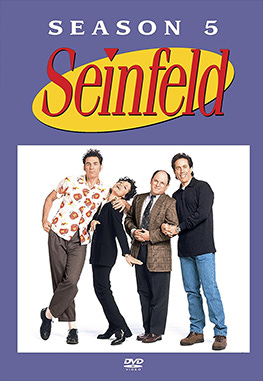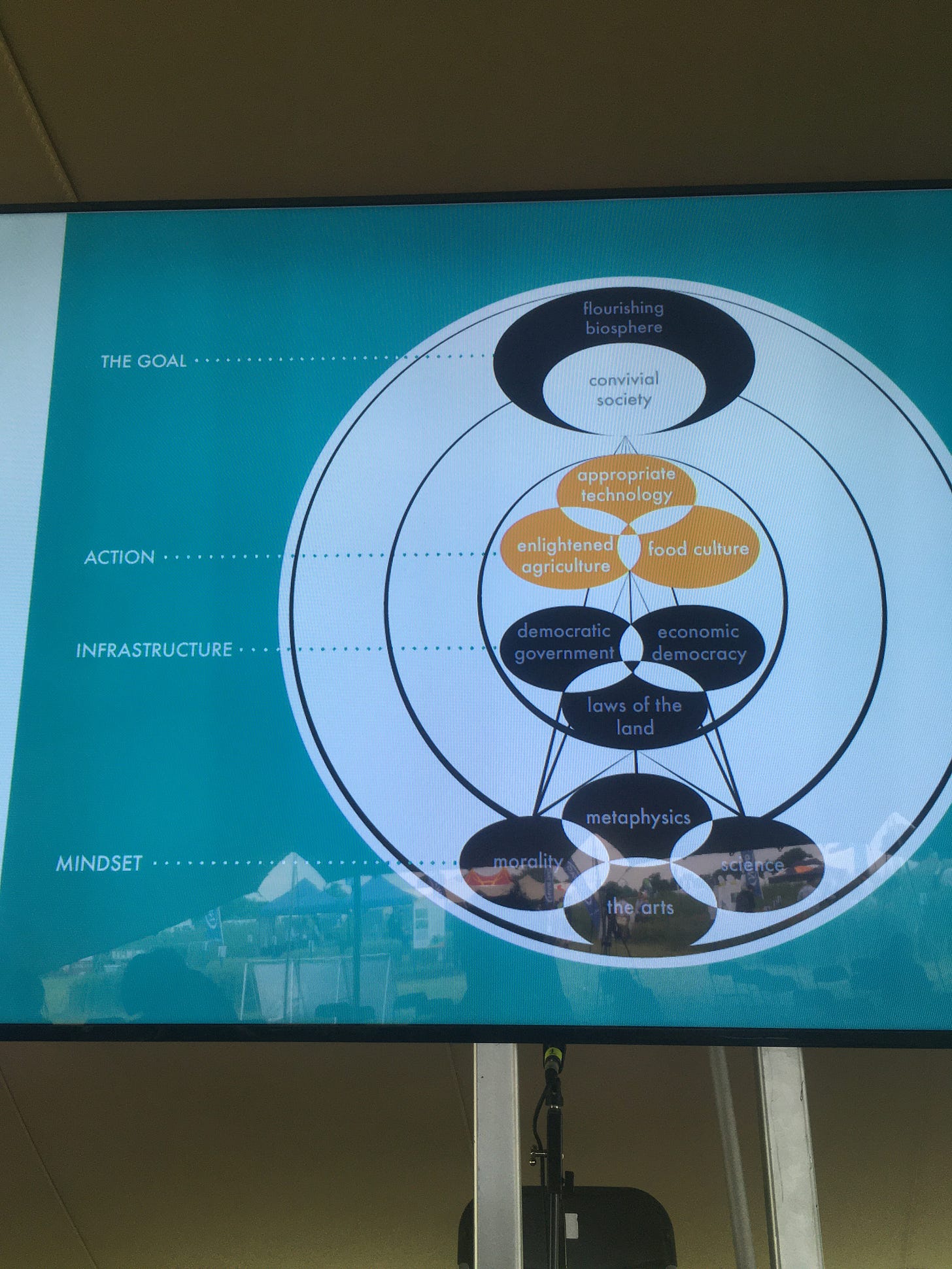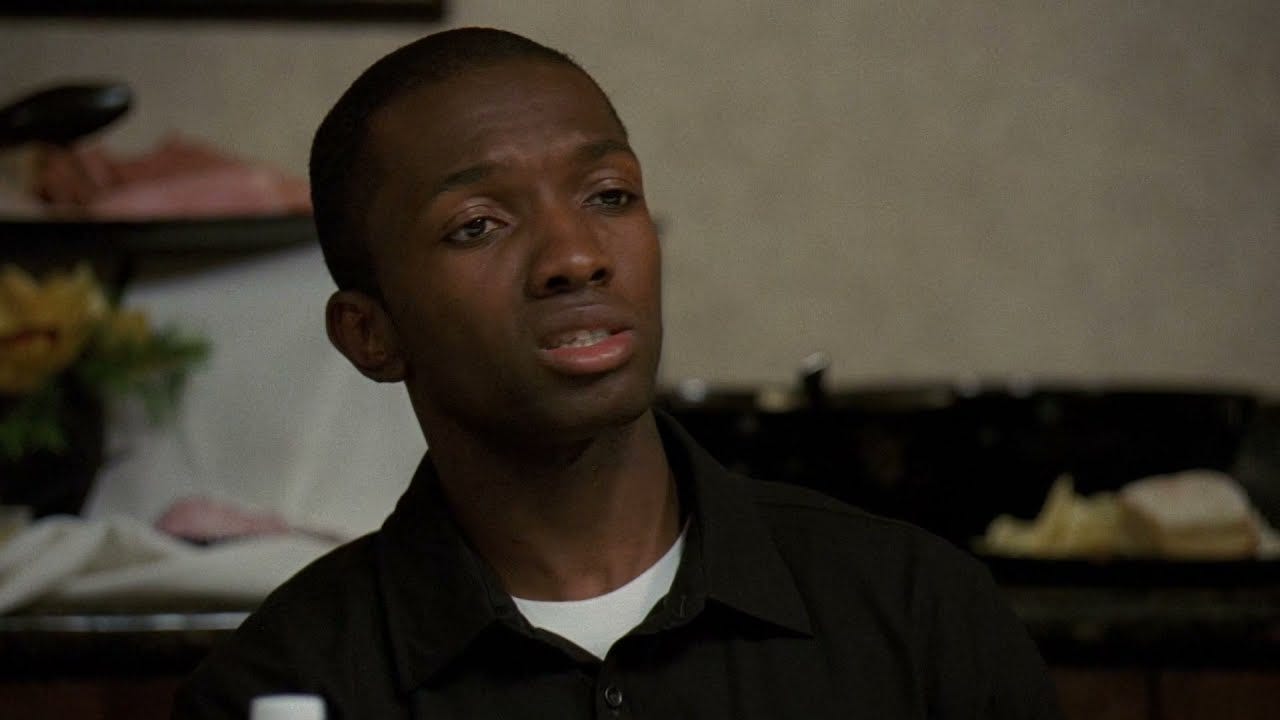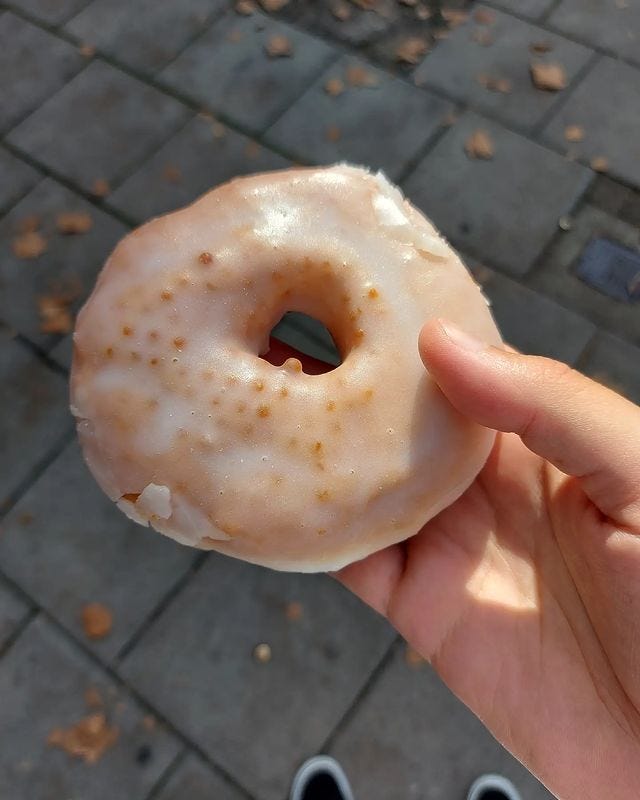Season 5 - Food Producers and Production
Plus, a big announcement
Good morning and welcome to Vittles.
All contributors to Vittles are paid. This is all made possible through user donations, either through Patreon or Substack. If you would prefer to make a one-off payment directly, or if you don’t have funds right now but still wish to subscribe, please reply to this email and I will sort this out.
All paid-subscribers have access to the back catalogue of paywalled articles, including the latest newsletter which is about Salt Bae’s London opening, and the parallels between him, the Attitude Era of WWF, Pablo Picasso’s line drawings, and Salt Bae’s many other antecedents.
If you wish to receive the newsletter for free, or wish to access all paid articles, please click below. You can also follow Vittles on Twitter and Instagram. Thank you so much for your support!
Season 5
(If you’ve already read this, please skip to the section marked ‘the columns’!)
A few months ago, I was sitting in a field outside Stevenage at an event called Groundswell, mulling over the theme for Season 5 of Vittles. Groundswell is a kind of Glastonbury for farmers, where the Pyramid Stage is headlined by the Rt. Hon. George Eustice rather than Jay Z. The talks I attended on regenerative agriculture were fascinating, vital and urgent, but I also marvelled that I didn’t bump into a single other food writer there. It wasn’t that I was any better informed ─ I was only there by mistake, having first heard of it the day before and invited by a certain Head of Opinion who thought I would enjoy it. And yet, what could be more about food than its production? The divide seemed strange to me.
We often talk about the FOH/BOH distinction, but perhaps a more interesting distinction is between the back of house of production ─ farming, factories, slaughterhouses ─ and the front of house of everything else. While there are plenty of writers and academics who tackle these issues singularly, it struck me that there are very few food writers or publications dedicated to making the connections between them, especially as the gap between them keeps widening (I’ve recently enjoyed Wicked Leeks, Farmerama, and I should also give credit to Jay Rayner’s work on food policy, but in the UK these are exceptions rather than the rule). I was also made brutally aware at Groundswell, at how little I know myself.
I decided pretty much the day after Groundswell that Season 5 had to be on food producers and production. This will be a big departure from what I’m usually comfortable with. Up until now, the seasons have mirrored my own interests ─ urbanism, disaporas, identity and nationalism ─ but food production is something I’m usually the least knowledgeable person in the room about. So this season will be something quite new for Vittles, covering many areas of food writing that it hasn’t before. I’m looking forward to learning a lot from it.
Pitching guide
Paid subscribers have known the season topic for over a month now, and from the pitches that have already come in, and from the commissions I’ve already made, I think this season will be a slightly more complex one to organise than previous ones. Food production is unfortunately something that’s very difficult to get the public excited about, even people who are interested in food. So before you pitch please have a think about the wider story you would like to tell, and how you might get the lay-person interested. Even if the subject seems dry, it can always be creatively framed. Academics, this is probably your season to shine if you have a story that is too fun for academia but would usually be too academic for a food publication other than Gastronomica. I may ask you to loosen your writing style though!
I’m taking quite a broad view of production ─ from the agricultural to the industrial, from the farm to the urban garden, from the factory to the field. You might think the producer is always right at the start of the chain, but this isn’t always the case. I’d like to complicate the idea of who is a producer, whether it’s a worker at a factory, at a slaughterhouse, or even a forager. Some stories I’ve commissioned already relate to the production of taste, as well as the production of people, or a mindset. As always, I’m interested in how these stories point to a much bigger story, which might not necessarily be about food.
I’m not going to make this pitching guide too extensive, but from my experiences at Groundswell I am certainly looking for stories that take into account a much broader set of politics than the usual small c conservatism of British farming. As much as complicating the idea of the producer, I do also want to interrogate who production is actually for, and which types of production are for what type of person. I imagine that there will be stories about class, about labour, about land, about taste, and about power. In terms of specific compilations, I am looking for a few stories relating to British land reform in other countries, and their effect post-colonialism, and, judging by the number of pitches I’ve already had, there will certainly be a compilation on the different uses of urban gardens.
Pitches are technically open as of right now but I would advise you wait until next week to send them as I’m going to take a small email break. You can send them to vittleslondon@gmail.com. If you haven’t pitched before then I suggest you swallow your nerves and just send it ─ I’ve received many good pitches for season 4 in the last month which had just been laying in drafts, and unfortunately reached me far too late to actually commission.
Price of the brick is going up
The base rate for writers will now be £500 and £200 for illustrators for a regular article. Short pieces will be at 30p per word. As ever, I’m indebted to all subscribers whose support allows Vittles to operate as a competitive publication.
The columns
This is the real announcement.
When I started subscriptions on Vittles I knew it would have to be my own writing that was paywalled, as 1) it didn’t seem fair to paywall anyone else’s and 2) I didn’t have the funds for any other commissions. This has meant that I’ve written a weekly column every week for the last year, which has given me a new-found respect for any columnist who can think up of interesting, new things to say each week. I have to say there were weeks when I struggled. While I’m proud of the writing I’ve self-published (if you’re a subscriber you can read the backlog of 50 or so pieces on the website), I’ve been well aware that it’s really only useful to people who are interested in London restaurants, and that usually means people who actually live in London and have the money to spend on eating out. So since the start of season 4, I’ve been trying to get Vittles into a position where it can be less reliant on my writing and open up the Friday slot to a much more diverse set of perspectives and content that goes beyond London. I think it is now in that position.
From next month onwards, Vittles will operate a columnist system on Friday with four monthly columnists. These will operate as autonomous fiefdoms within the kingdom of this newsletter, each with it’s own separate section on the website. One of them will be me doing my usual thing, and I plan to use my extra time putting together some really big guides and maps that I hope London eaters will find invaluable. For the other three, I put together a wish-list of who I would be excited to read something by on a regular basis, and who, for whatever reason, didn’t already have the space to do so. To my amazement they all said yes.
So, without further to-do, the columns.
Yvonne Maxwell - Hidden in Plain Sight
Yvonne is not only already a great food writer, she is also a great London writer ─ from her first piece for Vittles on the uses of plantain, to her latest short segment on the Black British love of East Asian food in the Adopted Foods newsletter, she keeps challenging me to look at the city again with new eyes, often writing about food and spaces and interactions that do not normally get noticed or considered important by other people in the food writing world.
Therefore, Hidden in Plain Sight was always the obvious title for a column that will focus on “the stories, foodways, customs and traditions of the Black communities across the UK, as well as the global Black diaspora,” ones that have been here for years and decades, in plain sight, yet are rarely written about. As Yvonne says, the column will “amplify the voices from these communities that continue to speak regardless of whether they are heard”, and will be interwoven with Yvonne’s own observations on food, social justice and migration. I think, especially in the context of British food media, this will really be a revolutionary food column and I’m incredibly blessed that Yvonne is writing it for Vittles.
Feroz Gajia - The 4th Meal
Feroz is a savant of eating who knows more about the minutiae of food that any other person I know, to a degree that can often be infuriating. When I talk to Feroz about food, I’m always amazed he’s had the time in the day to have sampled so much, especially since he’s often running his own café, the excellent Bake St in Rectory Road. There seems to be no dish, no snack, no YouTube video left untried, uneaten or unseen by him, and I’ve often thought it’s such a waste to have all this knowledge swimming around in his head and not down in writing somewhere.
The 4th Meal will be a column dedicated to the greatest of culinary institutions: the pre-packaged snack. As Feroz says: “three meals a day is a puritanical outlook, and the most joy can be found in the bites in-between.” The column will analyse the many facets of snacking in collations of food that can be bought from various supermarkets across the UK: from the big boys to the cornershop, from the Chinese supermarket to the freezer section at South Asian stores. It will be a space to discuss, evaluate and celebrate the food and drink that are eaten everyday but usually fall through the cracks of food media. I know from my preliminary discussions with Feroz that this is going to be a huge amount of fun and it is going to change the way you snack for the better for the rest of your life.
Ruby Tandoh - Incidental Eating
I don’t think I need to introduce Ruby to anyone. For the last few years, I’ve waited for her to be given a regular column by some huge global publication ─ instead she’s just been quietly turning out some of the best British food writing of her generation, often self-published, as well as a truly groundbreaking new cookbook, Cook As You Are, which is thoughtful, generous and compassionate, and a real rupture in a cookbook world that so often assumes who its audience is.
Ruby has written two of my favourite articles for Vittles, on food in care homes and food in community centres, and in some ways Incidental Eating will be an extension of these themes. Each month the column will examine a different site or place or landscape where eating and cooking takes place but where it is incidental to the experience. Think “train buffet cars, vending machines, supermarket cafés, and ice cream vans,” places which are not eating destinations but “rely on the itinerant, impressionable hungers that we experience as we move through the world.” As Ruby says, for many people this way of eating “punctuates our days and often has far greater sway over our bodies, desires and lives than the places we actively seek out.” In other words, this will be about the exact opposite of a restaurant, and I look forward to my usual bullshit being balanced out by something much more thoughtful.
The schedule
The Vittles mainline on Mondays is going to take a break until December to allow me to commission the season and recharge my batteries a bit. I’ve been working non-stop on the newsletter since March 2020 and I hope you’ll forgive me for the long break which will allow me to work on a few other exciting projects outside of Vittles and will hopefully mean your heart will grow fonder for its reemergence in about six weeks time.
In the meantime, the paid-subscribers Friday slot is going to run as usual and I have a couple of important off-season pieces that will go out to all subscribers between now and December. I will also send out the first column by each writer to all subscribers so you can decide if you want to sign up ─ after that they will be paywalled as usual with a few exceptions that are decided by each writer. If you already love the sound of them and wish to sign up now and contribute to the column’s upkeep then please subscribe below for £4 a month. There is also a special 25% discount ─ from today onwards until Vittles restarts ─ for yearly subscriptions, which will be £30.
Thank yous
The more Vittles runs the more thank yous are in order. This publication would not exist without the work of many people, some of whom work behind the scenes. I’d like to once again thank everyone who has been supportive, quietly or otherwise, with funds, with advice, with encouragement on social media. You all know who you are and I can’t thank you enough.
Many thanks to everyone who wrote, contributed to, or illustrated an article this season:
Abbas Asaria, Robbie Armstrong, Craig Ballinger, Ben Barskey, Jesse Bernard, Helen Bowie, Jackson Boxer, Hannah Caesar, Alex Christian, Liam Colucci, CookClimbCode, Ed Cumming, Sharanya Deepak, Clare Finney, Feroz Gajia, Joel Golby, Calum Gordon, James Hansen, Josh Harrison, Angela Hui, Saba Imtiaz, Ada Jusic, Frank L’Opez, Eli Lee, Huw Lemmey, Sinjin Li, Gus Lobban, Heedayah Lockman, Joanna Luck, Vivek Menezes, Yvonne Maxwell, Reena Makwana, Damodar "Bhai" Mauzo, Shilpa Mayenkar Naik, Hugh Morris, Diya Mukherjee, Matt O’Callaghan, Sam Parry, Natasha Phang Lee, James Rhys, Richard Scott, Kashif Sharma-Patel, Samia Singh, Molly Pepper Steemson, Ruby Tandoh, Anna Tobias, Natasha Tripney, Aaron Vallance, Meher Varma, Tom Victor, Jan-Peter Westad, Alia Wilhelm, Michelle Wong and Sean Wyer.
Many thanks to all my interviewees:
Ned Beauman, John Birdsall, Dimitris Blachouras, Vasilis Chamam, Adam Coghlan, Chris Crowley, Justin Fores, Alex Gkikas, Normah Abd Hamid, Tim Hayward, Jim Leff, Limster, Jay Rayner, Jonathan Shainin, Will Shu, Vaughn Tan and Shekha Vyas
Thank you to Helen Graves for commissioning and editing What Even Is A Kebab?
I’m indebted to Mo Abbas for the creation of Ingrédient, which was the subject of the season opener and a constant inspiration.
A huge thanks to Sharanya Deepak, Rebecca May Johnson, Frankie McCoy and Meher Varma for their vital edits on some of the best articles Vittles has published.
And the biggest thanks of all to Liz Tray, who subedited all of my writing this season, and to Sophie Whitehead, who provided editorial assistance for the majority of this season’s articles. Vittles simply wouldn’t look the way it does without them.
Some of you I will see again later this week. But for the rest of you, have a lovely autumn.
Vittles will return in…
Jonathan Nunn is a food and city writer based in south London, as well as the editor of Vittles. You can find him on Twitter and Instagram.
Please send all pitches to vittleslondon@gmail.com









Have a well-deserved break - I look forward to the season ahead!